Hong Kong finance chief Paul Chan on Wednesday delivered his eighth budget, scrapping long-standing property taxes to revive a depressed housing market and scaling back relief measures for residents against a deficit that exceeded HK$100 billion for the second consecutive year.
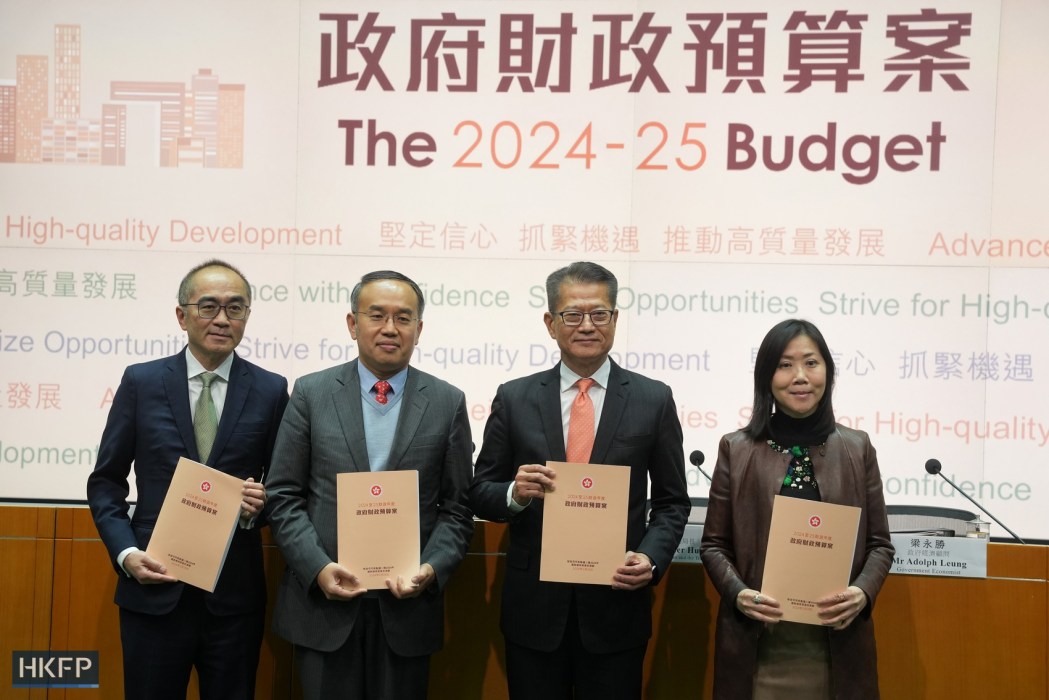
Following the budget speech, Chief Executive John Lee said he shared Paul Chan’s “confidence and optimism in Hong Kong’s future,” while the city’s no. 2 official Eric Chan hailed the fiscal blueprint as “steadfastly seeks progress while ensuring stability.”
At the opposition-free legislature, lawmakers praised the budget as providing a timely intervention to stimulate the property market. But, outside the chamber, one remaining opposition party and NGOs raised concerns about the fiscal plan’s lacklustre support for residents facing economic hardship.
HKFP rounds up some of the reactions to the latest budget from major political parties and NGOs.
‘Appropriate and pragmatic’
The pro-Beijing Democratic Alliance for the Betterment and Progress of Hong Kong (DAB), the largest political party at the legislature, said on Wednesday that Paul Chan’s budget was “appropriate” and “pragmatic,” with measures to boost the economy and support businesses under a ballooning fiscal deficit.
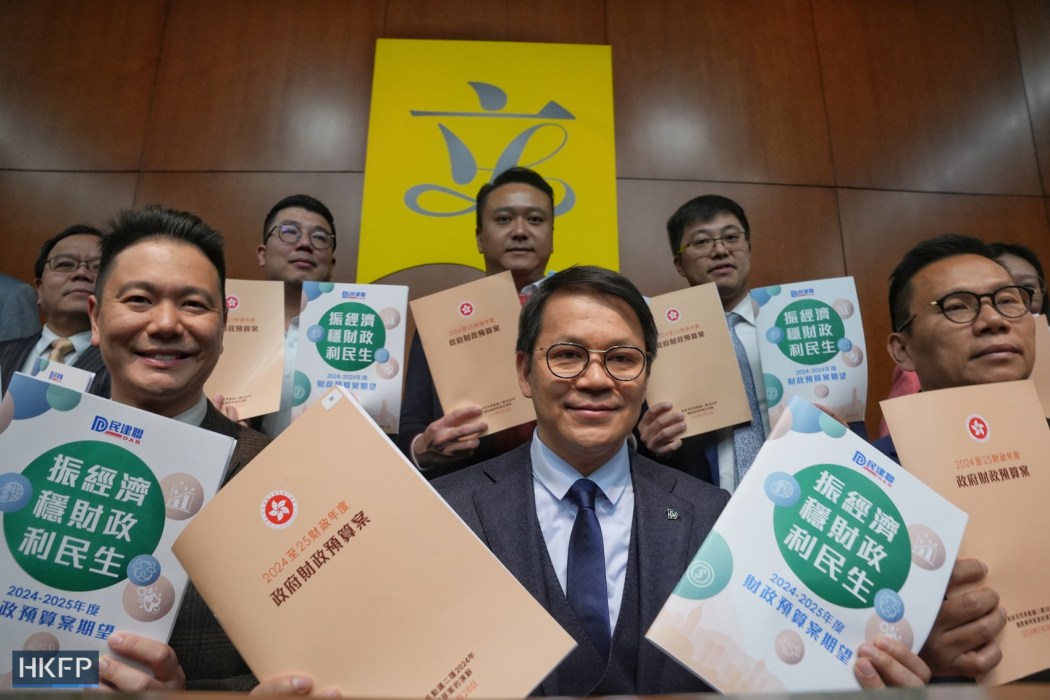
“The latest budget is appropriate to the current situation, pragmatic and proactive,” said Gary Chan in Cantonese, DAB’s chairperson and a lawmaker.
He said the fiscal plan had adopted suggestions put forth by the DAB, including the move to scrap extra stamp duties and relax mortgage rules. He said it will create “favourable conditions” for reviving the housing market.
See also: Extra stamp duties axed in bid to revive housing market
Hong Kong’s housing market has slumped over the past three years, with property sales plunging from around 74,000 units in 2021 to 43,002 last year, according to the Land Registry. The government’s home price index fell for nine consecutive months to 306.4 in January, reverting to levels seen in 2016.
Paul Chan on Wednesday announced that extra stamp duties – the Special Stamp Duty on properties resold within 24 months, the Buyer’s Stamp Duty on non-locals, and the New Residential Stamp Duty on second-home buyers – would be axed with immediate effect.
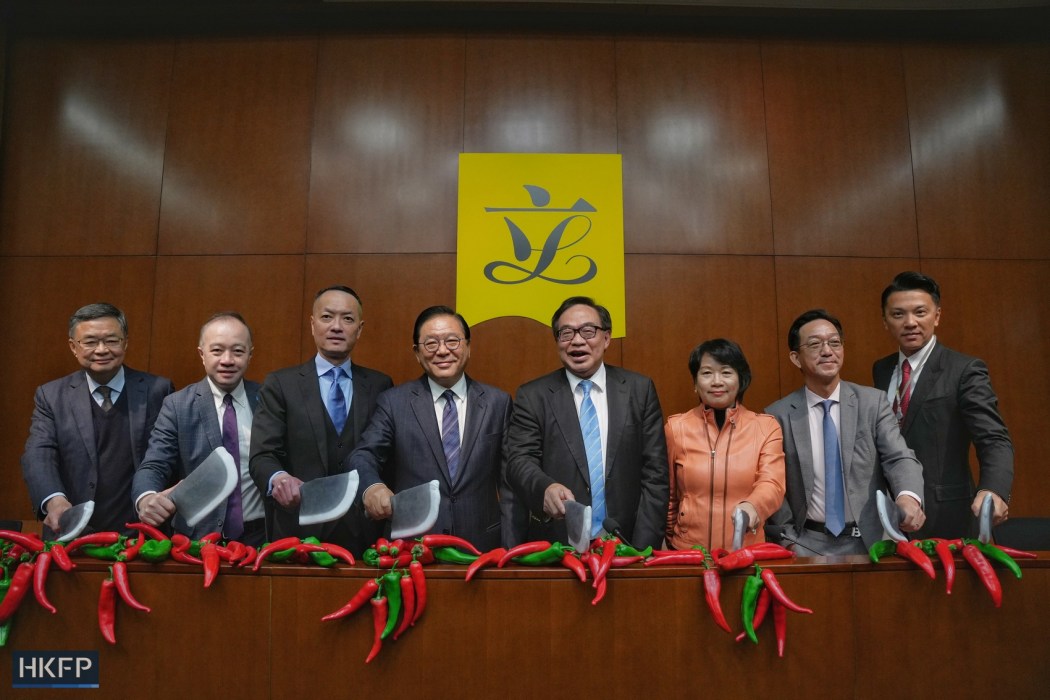
Regina Ip, chairperson of the New People’s Party and the convenor of the Executive Council, also expressed support for the move, saying she believed more Hongkongers would be able to become homeowners after the withdrawal of property cooling measures.
Meanwhile, lawmakers from the Business and Professionals Alliance for Hong Kong celebrated the move to scrap the extra stamp duties – known colloquially as the “spicy measures” – by chopping prop chillies at a press briefing following the budget speech.
Relief measures reduced
Separately, Gary Chan said that the city’s financial situation did not allow for large-scale one-off relief measures, given the consecutive deficit and a dwindling fiscal reserve.
But Paul Chan still offered sweeteners totalling around HK$115 million in this year’s budget. Salaries and profits tax reductions were capped at HK$3,000, half of last year’s HK$6,000, though the consumption voucher scheme was scrapped.
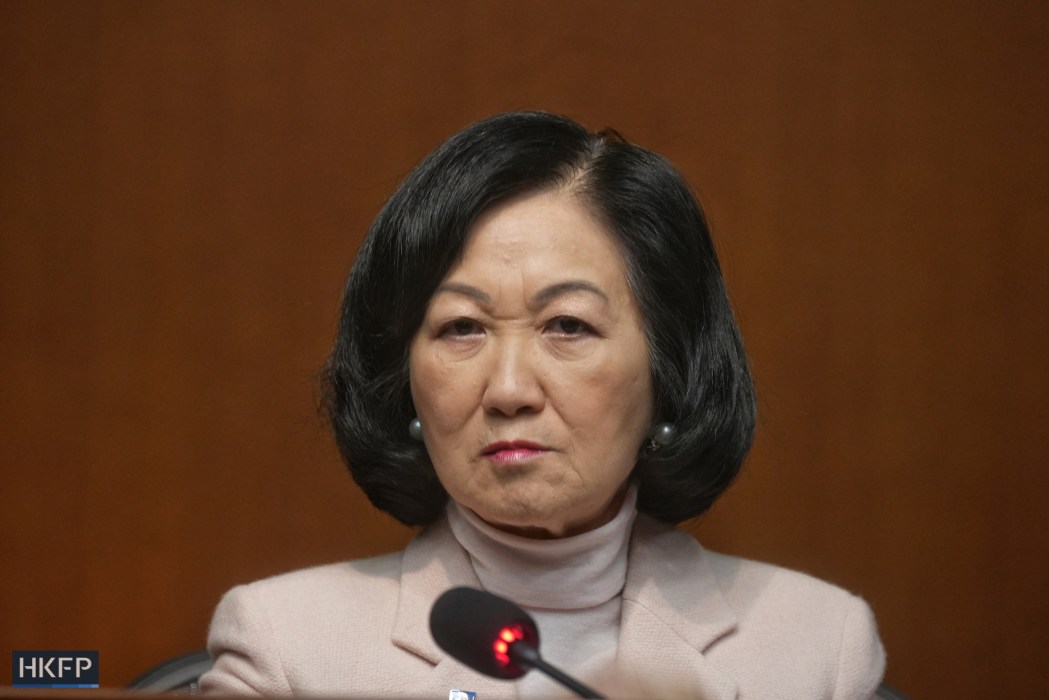
Gary Chan said the priority should be put at boosting overall economic development so that residents could enjoy the profits of growth.
See also: No consumption vouchers as relief measures scaled back
Holden Chow, the DAB’s vice-chairperson, added that the government should be careful in planning its expenditure, and should ensure that the budget does not significantly increase the burden residents’ livelihoods.
But the opposition Democratic Party questioned why the government did not consider reducing the salaries of principal officials so as to demonstrate a spirit of togetherness with residents facing hardship.
“If officials can demonstrate an attitude of riding out the storm together with residents, people could feel that the government is addressing the situation in a concerted effort,” said chairperson Lo Kin-hei. “It’s a shame that the government did not mention [about official salary cuts], we are very disappointed.”
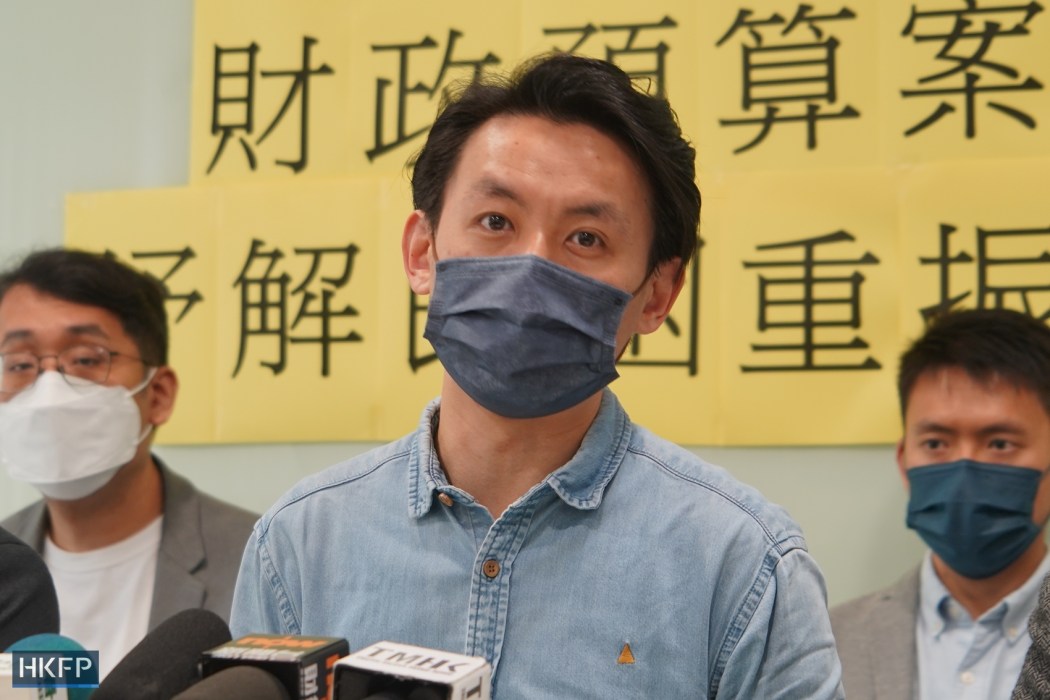
The Society for Community Organisation on Wednesday also said the relief measures were insufficient for the city’s low-income residents.
The anti-poverty NGO said the extra allowances provided for the elderly, disabled, and residents living on social security, do not fully cover the city’s underprivileged population, especially working class families with children.
It urged authorities to consider an additional HK$5,000 cash handout for low-income residents.
On tobacco tax
Also on Wednesday, the pro-business Liberal Party expressed “disappointment” with the increase in tobacco tax. Its chairperson Peter Shiu said the party supported people who wish to quit smoking, but it should be achieved through publicity work and education.
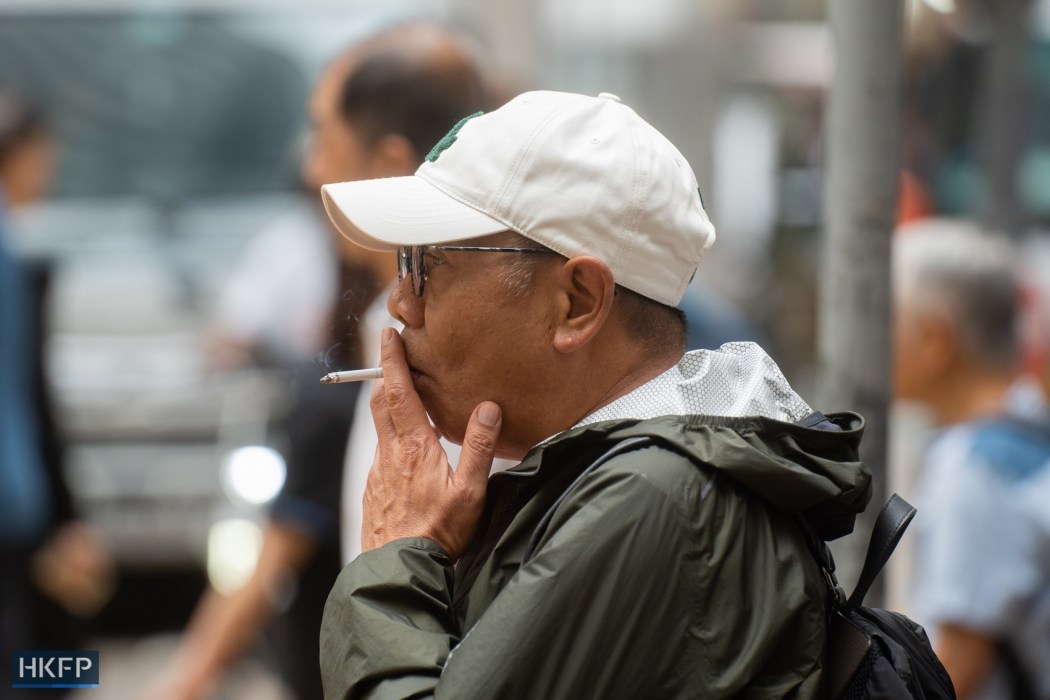
Paul Chan announced on Wednesday that the duty on cigarettes would rise by 80 cents per cigarette, or HK$16 for a pack of 20, with immediate effect. The move takes the price of a pack of cigarettes to around HK$96.
See also: Tobacco tax rises for second consecutive year to put public off smoking
“The significant increase in tobacco tax this time may lead to more illicit cigarettes in the market. It also adds more burden on low-income individuals,” Shiu added.
Additional reporting: James Lee & Kelly Ho.
Hong Kong Budget 2024 in full:
- City expects HK$101.6 billion deficit as land sales revenue dip
- City’s economy grew by 3.2% last year, inflation ‘moderate’
- Finance chief asks for ‘understanding’ over lack of sweeteners
- Costly transport subsidy schemes face review amid HK$100 billion deficit
- Artificial islands project delayed, finance chief Paul Chan says, but will go ahead
- Tobacco tax rises for second consecutive year to put public off smoking
- Higher salaries tax rate for those earning over HK$5 million annually
- No consumption vouchers as relief measures scaled back
- City seeks to bring back 3% hotel tax to increase revenue
- Extra stamp duties axed in bid to revive housing market
- Over HK$1.1 billion to ‘soft sell’ city, inc. monthly drone and fireworks shows
Support HKFP | Policies & Ethics | Error/typo? | Contact Us | Newsletter | Transparency & Annual Report | Apps
Help safeguard press freedom & keep HKFP free for all readers by supporting our team

LATEST FROM HKFP
HKFP has an impartial stance, transparent funding, and balanced coverage guided by an Ethics Code and Corrections Policy.
Support press freedom & help us surpass 1,000 monthly Patrons: 100% independent, governed by an ethics code & not-for-profit.










